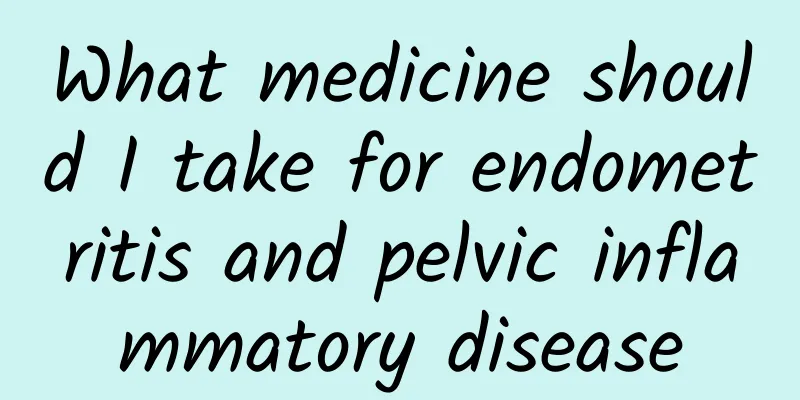What medicine should I take for endometritis and pelvic inflammatory disease

|
Commonly used drugs for the treatment of endometritis and pelvic inflammatory disease include antibiotics, anti-inflammatory drugs and Chinese patent medicines. The specific choice should be determined according to the cause and symptoms. Common causes include bacterial infection, sexually transmitted diseases, and infection after surgery or childbirth. 1. Antibiotics are the main drugs for treating bacterial infections. Cephalosporin antibiotics such as ceftriaxone and ceftriaxone are effective against a variety of bacteria and are suitable for acute infections. Metronidazole and clindamycin are often used to treat anaerobic infections, especially in patients with pelvic inflammatory disease. Doxycycline has a good effect on chlamydia infections and is often used for inflammation related to sexually transmitted diseases. 2. Anti-inflammatory drugs such as ibuprofen and acetaminophen can relieve pain and inflammatory reactions, but they must be used under the guidance of a doctor to avoid side effects caused by long-term use. For patients with chronic inflammation or recurrent attacks, non-steroidal anti-inflammatory drugs can help alleviate symptoms. 3. Chinese patent medicines such as Fuke Qianjin Tablets and Fuyankang Tablets have the effects of clearing away heat and detoxifying, promoting blood circulation and removing blood stasis, and are suitable for chronic inflammation or adjuvant treatment. These drugs usually need to be taken for a long time and have a mild effect, but attention should be paid to the interaction with Western medicines. 4. During treatment, it is recommended to eat more foods rich in vitamin C, such as citrus fruits, to enhance immunity. Avoid spicy and irritating foods to reduce the risk of aggravating inflammation. At the same time, pay attention to personal hygiene and avoid sexual intercourse to prevent the spread of infection. 5. If the symptoms are severe or recurrent, you need to seek medical attention promptly. Further examinations such as B-ultrasound and secretion culture may be required to clarify the cause and adjust the treatment plan. For patients who do not respond to drug treatment, surgical treatment such as laparoscopic exploration or abscess drainage may be considered. The treatment of endometritis and pelvic inflammatory disease requires the selection of drugs according to the cause and symptoms. Antibiotics, anti-inflammatory drugs and Chinese patent medicines are commonly used. At the same time, attention should be paid to diet conditioning and personal hygiene. If symptoms persist or worsen, seek medical attention in time to avoid delaying treatment. |
<<: How to take care of cervical hypertrophy
>>: What tests are done to diagnose the cause of sinus atresia?
Recommend
Will eating hawthorn cause miscarriage? Don’t eat too much
Many women like to eat sour foods during pregnanc...
What are the dangers of painless abortion?
Painless abortion is a method of abortion that is...
Some common symptoms of dysmenorrhea in women
Dysmenorrhea is a common and frequently occurring...
Can I get pregnant if I have mild vaginitis with cleanliness level 2?
Can I get pregnant if I have mild vaginitis with ...
What are the specific causes of dysmenorrhea?
What are the specific causes of dysmenorrhea? Dys...
Does a 1 cm endometrial polyp require surgery?
Whether a 1 cm endometrial polyp requires surgery...
Experts explain the symptoms of severe cervical erosion
Do you know the symptoms of severe cervical erosi...
Examination for pelvic peritonitis
As we all know, pelvic peritonitis is a common di...
5 types of snacks that office workers should avoid to prevent weight gain
It's time for afternoon snack again. Open the...
Traditional Chinese Medicine for Menopause
If menopause is not treated in time, it may cause...
What bad habits can cause menstrual irregularities in women?
What bad habits can cause irregular menstruation ...
What medicine should I take for uterine adnexitis?
What medicine should be taken for uterine adnexit...
To prevent cervicitis, you must choose a method that suits you
The incidence of gynecological diseases is gettin...
Several common examination methods for acute cervicitis
For female patients, the examination of acute cer...
What is the best lotion for women with chronic cervicitis? How to treat chronic cervicitis in women?
In real life, more and more married women suffer ...









